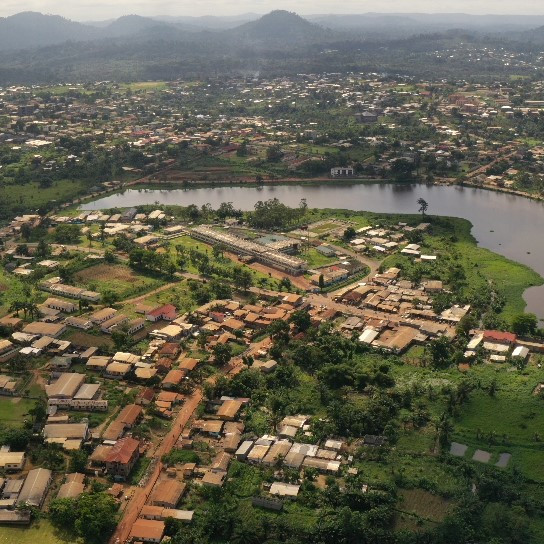
- Access to abortion pills, costing as little as $5, has quietly expanded, helping some women access safe abortions and bypass legal restrictions.
- As rights groups warn that unsafe abortions are driving the country’s high maternal death rate, legislators debate a bill that would expand access to legal abortion.
- Religious leaders and conservative politicians strongly oppose the legalization of abortion, leaving the bill’s passage in the Senate uncertain.
By Joyclyn Wea, senior reporter with New Narratives
D. was 18 and had just entered the 12th grade in 2017 when she discovered she was pregnant. Like all teenage students, ambitious for a successful future – in her case as a banker – she feared having a baby would end her dreams. She also feared the shame it would bring to her mother, who had worked hard selling potato greens in a local market to pay for her daughter’s education so she could have a better life.
D.’s sister’s boyfriend offered a solution. He told her there were now pills available that could end the pregnancy safely.
“He showed me the medicine,” D. recalled. She paid $20 for four small pills – two different medications – that came in a matchbox-sized package. Following the instructions, she took one medication by mouth and waited 12-24 hours for signs that the pregnancy had ended. Then she took the second medication, which expelled the contents of her womb.
For D., it was a huge relief. She had heard many stories of women who had been forced to obtain abortions illegally. They often ended in tragedy. The identities of all women in this story are being withheld to protect them from stigma.
“There wasn’t any fever, pain, and I didn’t go to the hospital after,” she said.
D.’s stories are part of a quiet revolution occurring across the world, including in Liberia. Medicines are now offering women and girls safe alternatives for abortion. Liberian law only permits abortion in a few cases: rape, incest, fetal abnormality, or threats to maternal health. Getting permission requires written approval from at least two doctors, and cases involving sexual assault must be documented with evidence provided to the health minister, county attorney, or police. Performing an illegal abortion carries penalties of up to five years in prison.
The result has been that only wealthy women have been able to get safe abortions, while thousands of poor women and girls are maimed or killed each year after resorting to dangerous methods, including inserting sticks and glass inside their wombs and drinking toxic chemicals. Liberia has one of the highest rates of maternal mortality in the world, and unsafe abortion is a major factor.
Another woman, T., had a very different experience. Discovering she was pregnant at age 15 and desperate to hide it from her parents, she sought an abortion from a man in the community who did the procedure quietly for $US50.

“The man put me on a long bed,” she recalled through tears. “Then he had plenty of iron in a pan. Then he used that. He put it inside me.”
Seven years on, T. suffers from constant pain. Doctors have told her she would not bear children. “The doctors to JFK and ELWA say the person didn’t do the work good and the money they are requesting, my father doesn’t have that money,” she said. “I can just be praying to God, asking God to forgive me.”
T. is one of thousands of Liberian women harmed every year in the quest to access abortion. A groundbreaking 2021 study by Liberia’s Ministry of Health in partnership with the Clinton Health Initiative revealed the staggering scope of unsafe abortion – more than half of all pregnancies were unintended, with one-third, or more than 38,000, ending in abortion.
The study found more than three in every five abortions led to moderate to severe complications, and one in ten resulted in death or “near misses”, where women nearly died from complications.

“One in every three women who have induced abortions seeks help for complications at facilities. Of those, 75 percent had moderately severe complications,” according to the research.
The study documented 14,555 women who sought care for abortion-related complications in 2021 alone. Activists said the true numbers are far higher due to stigma and fear of legal repercussions that prevent women from seeking care. And because Liberia has one of the world’s highest rates of teen pregnancy – one in three girls is pregnant by the age of 18 – it’s a crisis being borne heavily by girls.
A medical abortion is a safe procedure that works by stopping the growth of the pregnancy and then causing the uterine lining to shed. The most common regimen involves taking two drugs — mifepristone and misoprostol. Mifepristone blocks progesterone, the hormone needed to support a pregnancy. Misoprostol causes cramping and bleeding to empty the uterus. The drugs were first approved in the United States 25 years ago, and nearly two-thirds of abortions in the U.S. are now carried out with medication.
“The pills cannot lead to death,” Dr. Su Mon Thaw, a medical professional who has worked in reproductive health in Liberia and overseas for years. “There will be bleeding, which is common in medical abortion, but they don’t leave any lasting effects. Without these medications, complications of unsafe abortion can be lethal.”
While some states in the United States have sought to ban them. Experts say that in Liberia, they are legal through a loophole. If administered by the patient herself, the act is not illegal. The medications, which cost between $5 and $20, are imported from certified manufacturers in India and Bangladesh through official channels regulated by Liberia’s Medicines and Health Products Regulatory Authority. They are available at many pharmacies.
Reproductive rights advocates have welcomed the arrival of the drugs. Titus Pakalah, who leads Sexual Reproductive Health and Rights Champions Liberia, recounted a recent case in West Point, Monrovia’s largest informal settlement, where a teenage girl died from complications after using a traditional practice known by the acronym “RPG” or “rocket propelled grenade” – a mixture of non-prescribed drugs, and nonalcoholic beverage, chili pepper extract and sediments from crushed bottles combined with sodium carbonate, according to a 2021 study.

“She was afraid because she feared that when she reported, her parent would beat her or even stop supporting her,” Pakalah said. “And that girl bled for one week, and she passed away.”
The public health bill, which includes the clause that would legalize abortion up to 14 weeks if performed by a doctor, would fundamentally change this landscape. Passed by Liberia’s House of Representatives in 2022, it was then blocked by senators who, in the run-up to the 2023 election, feared it would hurt their reelection bids in the face of a strong opposition campaign funded in part by American organizations.
The 2023 election brought 15 new lawmakers to the Senate, forcing advocates to restart their lobbying efforts. The bill’s passage is on a knife-edge. It requires a two-thirds majority to pass, or 20 votes. Of the 30 sitting senators, Pakalah estimated that 20 have expressed interest in the bill. Five remain opposed, while five others are seeking further consultation with their constituents.
Senator Darbah Varplah, who now chairs the Senate health committee, said the abortion provision has dominated discussions about a comprehensive health reform package that includes provisions for vaccination programs, biosecurity measures, occupational health standards, and environmental regulations.
Religious opposition has been fierce, with opponents arguing that abortion is morally unacceptable under any circumstances. The resistance extends beyond religious circles to include traditional leaders and conservative politicians who view abortion as contrary to cultural values.
Supporters of the law said pushing it through required courage unlike any other act of their political lives. Joseph Somwarbi, a pharmacist and former chair of the House committee, championed the passage of the bill, but he believes it cost him his seat.
“My own church turns against me, but God knows my heart. I don’t regret it because I was never born as a lawmaker,” he said. “As a medical person, my oath is my guide that I should save lives. I want to say this law is meant to save our population instead of going to the backyard, going to quack doctors who are doing those abortions in the kitchen, bathroom, bedroom, and other unhygienic places.”
“We are not compromising,” said Pakalah. “This bill seeks to really address women and children’s issues, health issues across Liberia. We should not look at this bill to think that when you put in resources, that is when it will pass. We must be able to humanize the conversation around this bill.”

Sub-Saharan Africa, which has the highest abortion case-fatality rate globally, resulting in 15,000 preventable deaths annually, according to reproductive rights organizations. The region also leads the world in maternal mortality, with unsafe abortion being a major factor. If passed, Liberia’s law would be among the most liberal in sub-Saharan Africa, where 92 percent of women of reproductive age live in countries with highly restrictive abortion laws, according to the Guttmacher Institute.
The contrast with other regions is stark. Most European countries allow abortion until at least the 10th week of pregnancy, with Sweden permitting procedures until the 18th week. Maternal mortality and unsafe abortions in those countries are extremely low.
Beyond legal barriers, Liberia’s healthcare system lacks the infrastructure to provide safe abortion services, even in legal cases. The country has one of the world’s lowest ratios of healthcare workers to population, with rural areas particularly underserved. Many healthcare facilities lack basic equipment for safe procedures, adequate blood supplies for emergencies, or trained staff capable of managing complications.
The economic impact of unsafe abortion extends beyond immediate healthcare costs. Women who experience complications often require extended hospital stays, face long-term health consequences that limit their ability to work, and may need ongoing medical care that their families cannot afford. For families already struggling with poverty affecting over 50 percent of Liberia’s population, experts say these costs can be devastating. The death or disability of a mother often plunges entire households deeper into poverty, affecting children’s education and nutrition.
Reproductive Rights Advocates Call for Greater Awareness Raising
D. was lucky. She learned about the abortion pills and avoided the dangerous alternative. She also learned how to avoid getting pregnant with five-year contraceptive implants that have saved her from having to go through the experience again.
Dr. Thaw would like to see more women and girls have access to that information and full family planning services. “Having safe abortion guidance would help a lot of young women. If they have access to safe abortion and a full understanding of family planning, that will save a lot of lives,” she said.
As the Senate reconvenes, the fate of the public health bill remains uncertain. Senator Varplah expressed cautious optimism about its passage.
“A lot of people are inclined and have understood that this is mainly about protecting women. It’s not just about abortion in the minds of the people as terminating another life. Sometimes abortion is necessary to save a life and to bring up more lives,” she said.
For women like D. and T, the stakes could not be higher. Experts say their stories illuminate the human cost of a system that forces desperate choices in the shadows while political leaders debate laws that can change their lives in the halls of power.
This story was a collaboration with New Narratives as part of the “Investigating Liberia” project. Funding was provided by the Swedish Embassy. The donor had no say in the story’s content.












